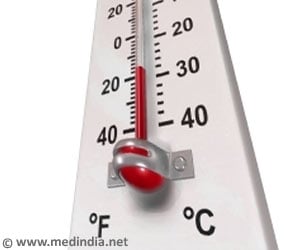- Cold weather accounts for 94% of temperature-related deaths despite fewer cold days
- Hypothermia sets in at 95°F, not just in sub-arctic conditions, leading to severe health risks
- Senior Black adults and the elderly are significantly more vulnerable to temperature-related hospitalizations
Individuals who died as a result of freezing temperatures accounted for 94% of temperature-related deaths, even though hypothermia accounted for only 27% of temperature-related hospitalizations, suggested a new study conducted by the University of Illinois Chicago (1).
“Despite the decrease in the number of cold weather days over the last several decades, we still see more deaths due to cold weather than hot weather,” said Lee Friedman, associate professor of environmental and occupational health sciences in the UIC School of Public Health and the paper’s corresponding author. “This is in part due to the body’s poorer ability to thermoregulate once hypothermia sets in, as well as since there are fewer cold weather days overall, people don’t have time to acclimate to cold when those rarer cold days do occur.”
Advertisement
What is Hypothermia?
Hypothermia, or a drop in the body’s core temperature, does not require sub-arctic conditions. Even modestly cool weather can cause hypothermia, which is defined as a dip in body temperature from the normal 98.7 to 95 degrees Fahrenheit (2). When this happens, organs and systems start shutting down to save the brain. Once initiated, the process might be difficult to control; however, persons who are exposed to lower temperatures frequently are more resistant to hypothermia.
Advertisement
Homeless People Cope Better From Temperature-Related Injury
“People who were experiencing homelessness in the records we looked at were less likely to die from temperature-related injury,” Friedman stated. “Because they have greater outdoor exposure, they acclimate better to both heat and cold.”
Advertisement
Heat-Related Disorders Less Common Than Cold-Related Injuries
Heat-related disorders are more likely to resolve themselves by moving to a cooler location or staying hydrated, according to Friedman.
From 2011 to 2018, the researchers examined inpatient and outpatient heat and cold-related injuries that necessitated a hospital visit in Illinois. They found 23,834 cold-related cases and 24,233 heat-related ones. Among these patients, 1,935 died from colds and 70 from heat.
Temperature-Related Mortality is Often Underestimated
According to Friedman, government data systems that track temperature-related mortality dramatically underestimate the number of deaths.
“We found five to 10 times more temperature-related deaths by linking the hospital data to data from the National Weather Service and medical examiner’s data,” he stated. “There are a lot more people dying from temperature-related injuries than is generally reported.”
Senior Black People More Likely to Suffer From Temperature-Related Ailments
Friedman and his colleagues also discovered that from 2011 to 2018, the total cost of temperature-related hospital visits in Illinois was nearly $1 billion.
Adults over the age of 65 and Black persons were nearly twice as likely to be hospitalized for temperature-related ailments. Individuals who entered a hospital due to cold weather frequently had a variety of health problems, including electrolyte imbalances, cardiovascular disease, and kidney failure.
Need for Awareness of Risk of Cold Injuries
“Currently, the public health community focuses nearly entirely on heat harm. Our statistics show that increased awareness and education are needed about the risk of cold injuries, especially when there are fewer but more severe cold weather days, leaving less opportunity for acclimatization, which can protect against hypothermia,” Friedman added.
The paper is co-authored by Chibuzor Abasilim, Rosalinda Fitts, and Michelle Wueste from the University of Illinois Chicago.
References:
- Clinical outcomes of temperature-related injuries treated in the hospital setting, 2011–2018
Lee S. Friedman, Chibuzor Abasilim, Rosalinda Fitts, Michelle Wueste. Clinical outcomes of temperature-related injuries treated in the hospital setting, 2011–2018. Environmental Research, 2020; 189: 109882 DOI: 10.1016/j.envres.2020.109882 - Hypothermia
Duong H, Patel G. Hypothermia. 2024 Jan 19. In: StatPearls [Internet]. Treasure Island (FL): StatPearls Publishing; 2024 Jan–. PMID: 31424823.
Source-Medindia



